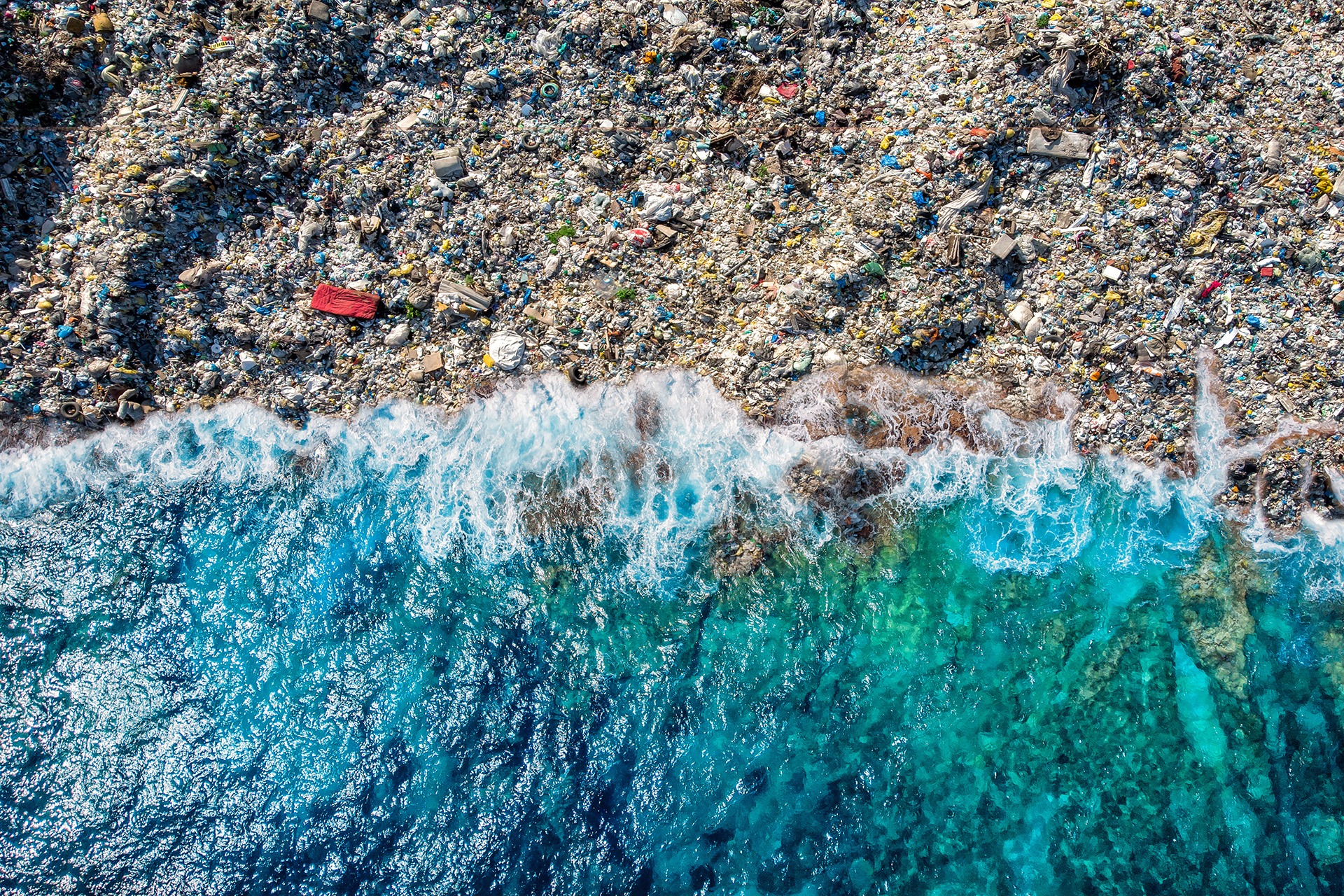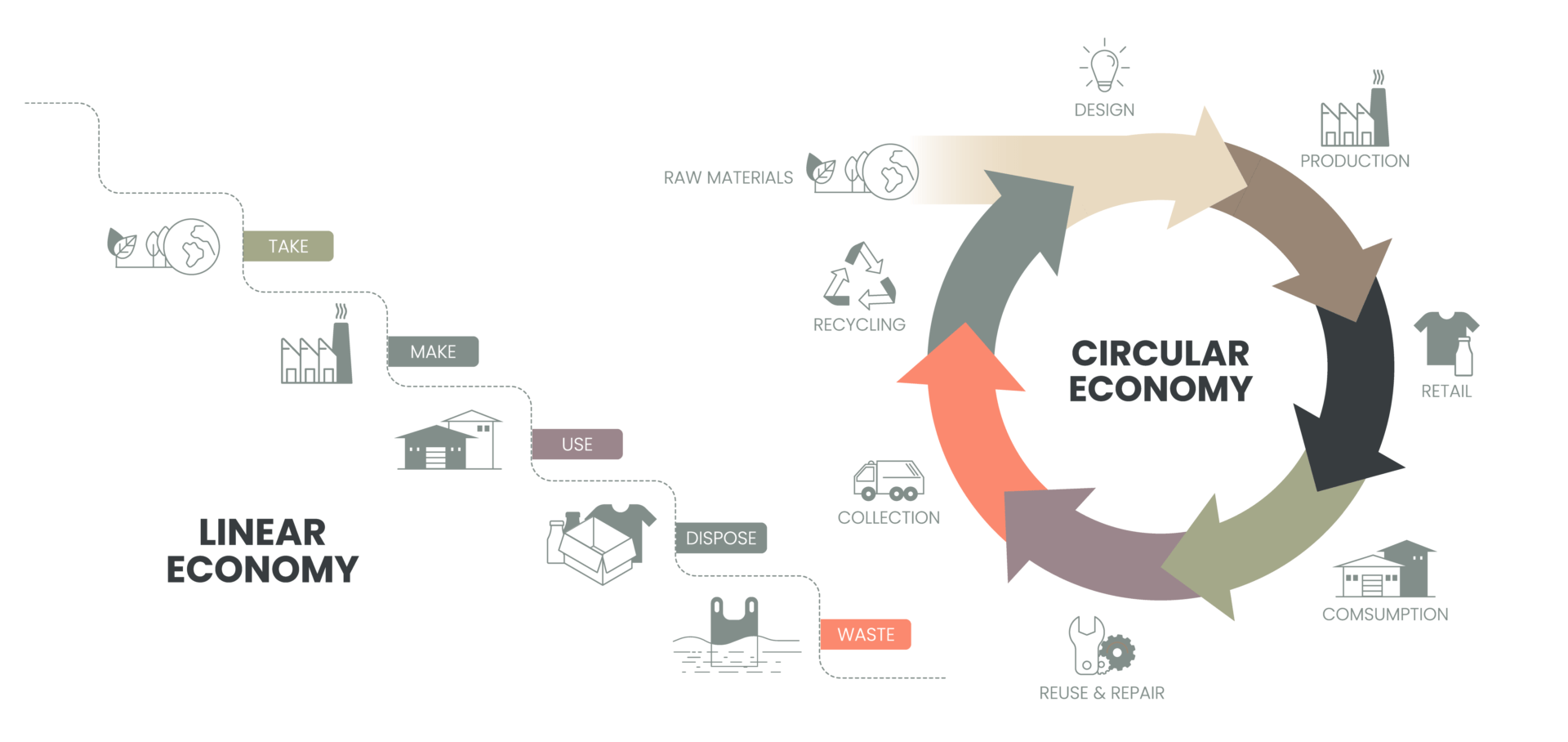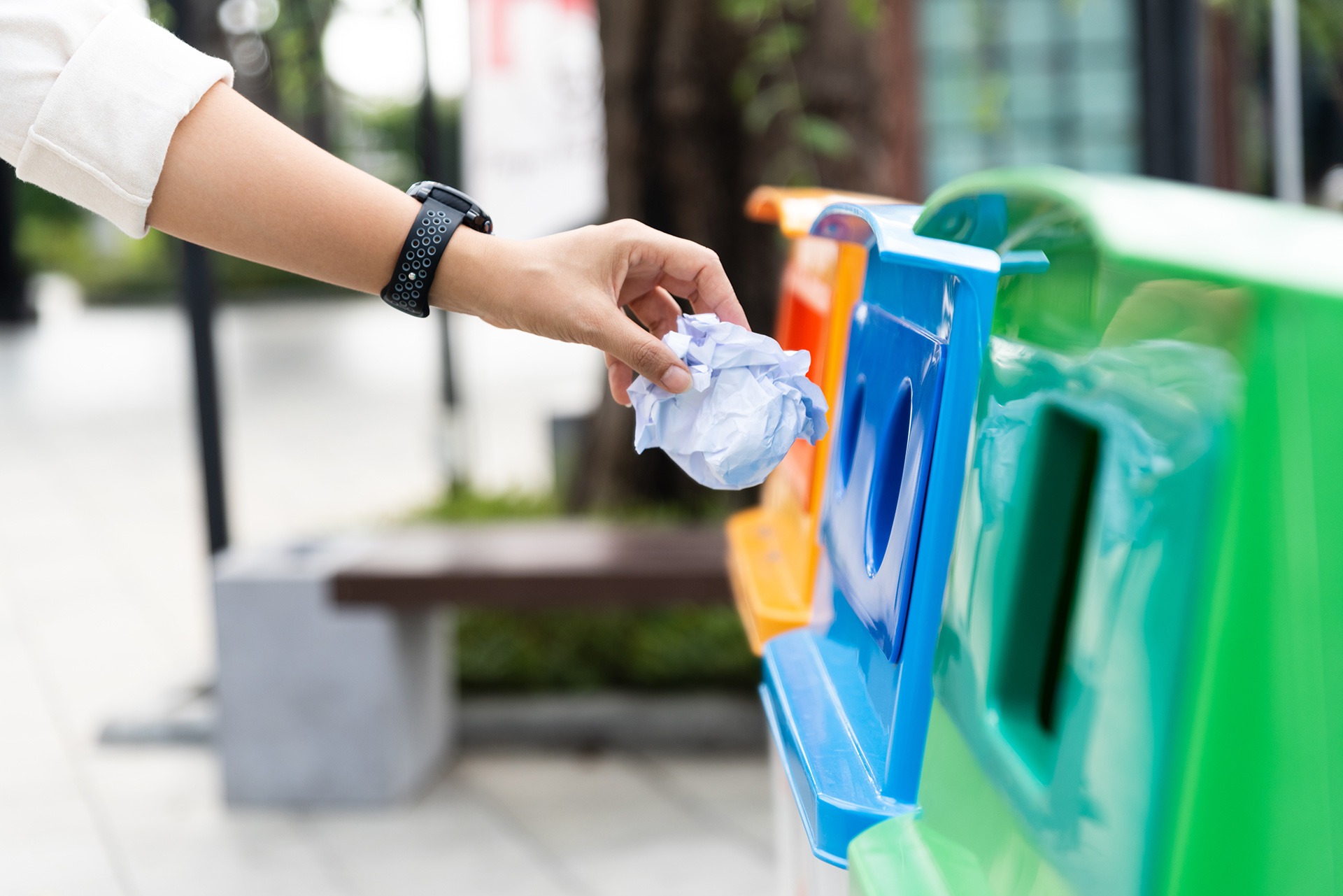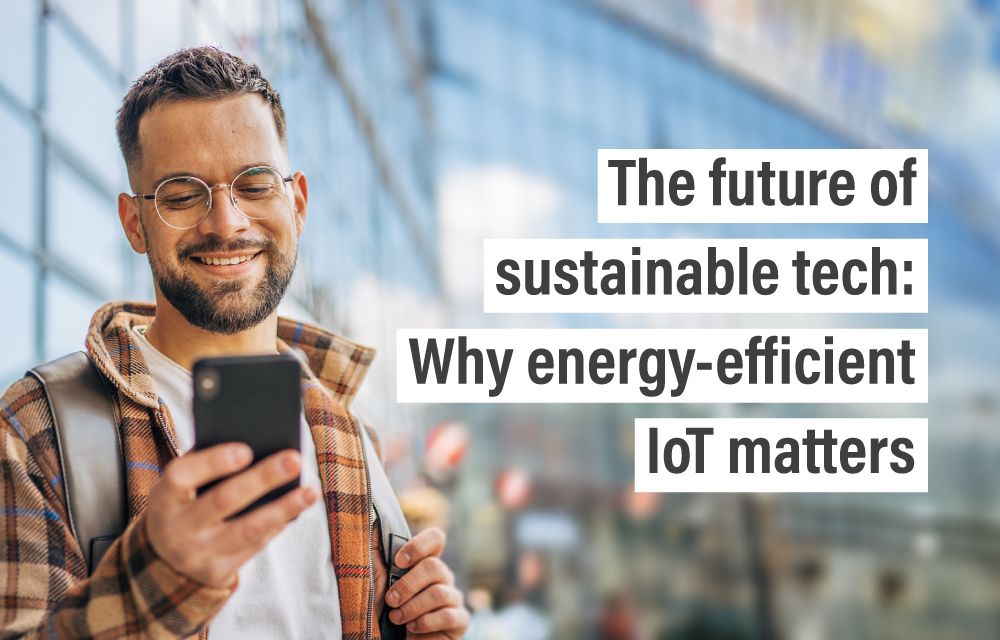Could an IoT ecosystem for plastic make recycling work?
Reading time 10 mins
Key Points
- Less than 9% of the 300 million tonnes of plastic produced every year is actually recycled
- Governments and companies mislead consumers by greenwashing their policies/products – which often increases the use of plastic as a result
- Circular economy approach and IoT ecosystem for plastic production, consumption, and disposal could increase transparency, offer alternatives, and make recycling more effective
- ‘Smart-Cycle’ bin systems, microplastic removing washing machines, apps to help consumers understand how to recycle properly, AI Robots to sort plastic…
- Can IoT provide solutions to illegal waste dumping?
- More legislative and systemic change is needed upstream.
Is your business ready to harness the potential of IoT? Our expert team can help design and implement bespoke IoT solutions. Reach out to us now to kick-start your IoT journey.
Ben Mazur
Managing Director
I hope you enjoy reading this post.
If you would like us to develop your next product for you, click here
“Recycling doesn’t work, we all know it,” Everyday Plastic founder Daniel Webb told BBC News [1]. Nearly 300 million tonnes of plastic waste is produced annually, of which roughly 9% is recycled [2]. It’s a time-consuming, laborious, and complicated process that often results in recycled products that are more expensive or lower quality than their ‘virgin’ counterparts. Could creating an IoT ecosystem for plastic provide solutions to make recycling effective?
Most urban ecosystems consist of entities (i.e. manufacturers, consumers, recyclers, NGOs, governments) whose relationships with their physical environment (i.e. land, skies, and ocean) are under threat. These threats come from multiple directions – with plastic production, consumption, and disposal taking the lead. How can IoT help to improve our relationship with plastics and make its impact on various ecosystems a less destructive one?
Too much greenwashing, not enough recycling
Greenwashing happens when we’re led to believe that a product or policy is environmentally friendly – when it isn’t. Developed countries have a longstanding policy of exporting plastic waste and counting it as recycled. In the first half of 2020, the UK exported 64,786 tonnes (61%) of its plastic waste to low-income countries such as Malasia, Romania, and Vietnam despite government pledges to stop [3]. In the US, exports of plastic waste decreased from 1.84 million tonnes in 2017, to 61,000 tonnes in 2021 [4]. However, this had more to do with receiving countries’ refusal to accept it, and did little to address how the US, UK and other developing countries will reform the management of plastic waste domestically.
Companies and retailers aren’t far behind. Brands such as Cola-Cola, Unilever, and Tesco are being criticised for misleading the public into thinking that products are made from ‘ocean bound’ or recyclable plastic – when that’s often not 100% accurate [5]. Greenwash.com updates and publishes an extensive list of culprits, the tactics they use to distract the public and the consequences of those actions. Some of the most concerning are:
- 52% of UK consumers base their purchases on a company’s eco-credentials, and two-thirds are willing to pay more for sustainable products [6]. If these behaviours are motivated by false claims, they have little/no impact
- It’s an unfair business practice that robs genuinely progressive businesses of the attention they deserve because well-known brands have unfairly stolen the limelight
- It makes us think that sustainable change is happening (i.e. plastic is being recycled) and increases the production and consumption of even more plastic
- It does little to address the legislative change that needs to happen upstream, i.e. before the plastic is produced in the first place. Often, it’s the brands that generate the most plastic waste who do the most greenwashing and then derail change from happening at a legislative level [7]
A circular economy brings plastic pollution full circle
Greenwashing highlights that the linear economy approach (i.e. take, make, waste) is ineffective and prevents systemic change. A circular economy ( a model of production and consumption where everything is repaired, reused and recycled for as long as possible) is a more sustainable ‘closed loop’ approach. Here is where an IoT ecosystem for plastic could have an impactful role to play.
Consumers are a starting point for creating a circular economy and IoT ecosystem.
- Get informed & know your impact: Use apps such as Impact Score to scan barcodes and check that what you’re buying fits with your values (e.g. recyclable, locally made, low carbon, chemical free)
- Reduce ocean-bound plastic from home: A little goes a long way, and simply fitting washing machines with low-cost filters to trap microfibres significantly reduces the amount of microplastics ending up in oceans
- Recycle smarter: Barcode-enabled Scrapp App tells us if what we’re buying can be recycled, where the nearest collection point is, and what to do to ensure that it’s accepted (i.e. not contaminated). Better still, you earn ‘scrap points’, which you can use to make in-app purchases or donate to support a cause, e.g. beach cleanups.
An IoT ecosystem for plastic management in practice
IoT is the technology that manages the interrelationships between the different entities in a circular economy. If an app such as Scrapp facilitates communication between manufacturer, consumer, and recycler – devices equipped with sensors take it a step further.
Samsung’s proposed ‘smart-cycle’ trash can system [8] attaches a sensor to a bin that helps consumers to sort their waste:
- Hold the product up to the scanner to see which container it belongs to
- It analyses the data and offers you suggestions of more sustainable or eco-friendly options (if applicable) for future purchases [9]
- Samsung Display set up 11000 smart collection boxes in the Asan complex in Seoul. Users earn points every time they use it and can exchange them for cash once they have accumulated 2,000 points.
Digital technologies such as satellite imagery, drones, and AI can help the entities responsible for the collection and sorting of plastic recyclables to be more efficient to [10]:
- Increases transparency in the plastics supply chain and reduces the risk of greenwashing
- Supports livelihoods and digital inclusion, thereby creating value for all of the actors involved
- IoT in bin monitoring and weighing helps to provide a consistent and predictable supply of recycled quality plastics to consumer brands and other manufacturers
- Robotic recycling makes the task of bulk sorting error-free and poses fewer health risks (i.e. for people sorting hazardous materials). Equipped with cameras and high-tech computer systems to promote machine learning, these robots can work twice as fast, increase the quality of material output and its resale value
- Reduces the production and use of virgin plastics upstream
- Enables more products to be designed and optimised for reuse and recycling.
Closing the loop and fostering a climate where an IoT ecosystem for plastic reduction can thrive finishes with illegal waste dumping. A recent study shows th [11] at in England alone, 1-6 million tonnes of waste is illegally dumped annually. It remains to be seen how effective placing cameras and sensors in existing and potential illegal dump sites could be. While it would help to identify perpetrators and alert authorities, perhaps more legislation is needed to incentivise drop-offs at authorised recycling facilities and prevent clandestine activities from happening in the first place.
Will a circular economy for plastic recycling be effective?
With increasing numbers of developing countries refusing to become a dumping ground for Western waste, creating a circular economy to manage it domestically is a logical way forward. It places value on each part of the plastic supply chain and encourages a climate where innovative solutions can thrive. An IoT ecosystem for plastic helps close the loop, improves governments’ waste management systems, and supports sustainability goals. Governments, in turn, can focus more on upstream legislative change, e.g. higher taxes on single-use plastics, deposit return systems, and more incentives to plastic recyclers.
Do you think this type of intervention could get plastic recycling to work?
How else might IoT provide solutions to the challenges of plastic pollution?
Share your thoughts and let us know – we love hearing from you!
- Fisher, J. (2022, July 12). The Big Plastic Count: Survey shows “recycling doesn’t work.” BBC. https://www.bbc.com/news/science-environment-62126757
- World leaders set sights on plastic pollution. (2022, February 16). UN Environment Programme (UNEP). https://www.unep.org/news-and-stories/story/world-leaders-set-sights-plastic-pollution
- Clarke, J. S. (2020, October 19). UK still shipping plastic waste to poorer countries despite Conservative pledge. Enearthed. https://unearthed.greenpeace.org/2020/10/09/plastic-waste-uk-boris-johnson-malaysia/
- The real truth about the US plastic recycling rate. (2022, May). Beyond Plastics.
https://bit.ly/US-plastics-recycling-rate - Laville, S. (2022, June 30). Coca-Cola among brands greenwashing over packaging, report says. The Guardian. https://www.theguardian.com/environment/2022/jun/30/coca-cola-among-brands-greenwashing-over-packaging-report-says
- Carufel, R. (2022, January 24). Despite demand, retailers appear in the dark on consumers’ sustainability sentiment. Agility PR Solutions. https://www.agilitypr.com/pr-news/public-relations/despite-demand-retailers-appear-in-the-dark-on-consumers-sustainability-sentiment/
- Under Wraps? What Europe’s supermarkets aren’t telling us about plastic. (2022, May). Changing Markets Foundation. https://changingmarkets.org/wp-content/uploads/2022/05/Under-wraps_FULL-REPORT_FINAL.pdf
- Smart Cycle: How recycling can be improved using IoT. (2022, March). The SchoolLab. https://us.theschoolab.com/case-studies/smart-cycle-how-recycling-can-be-improved-using-iot/
- Smart Cycle: How recycling can be improved using IoT. (2022, March). The SchoolLab. https://us.theschoolab.com/case-studies/smart-cycle-how-recycling-can-be-improved-using-iot/
- Digital dividends in plastic recycling. (2021, April). GSMA ClimateTech Programme. https://www.gsma.com/mobilefordevelopment/wp-content/uploads/2021/04/ClimateTech_Plastic_R_WebSingles2.pdf
- Monbiot, G. (2021, November 24). Filthy business: who will stop Britain’s illegal waste-dumping mafia? The Guardian. https://www.theguardian.com/commentisfree/2021/nov/24/waste-dumping-uk-environment





